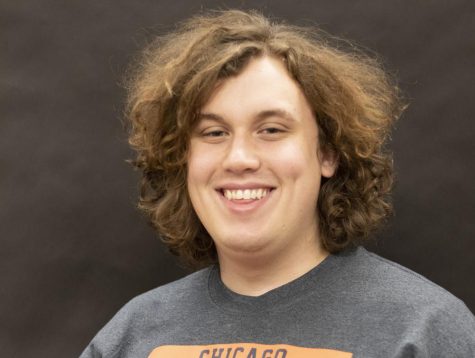Panel to discuss police brutality, criminal justice reform
October 27, 2021
Alpha Phi Alpha Fraternity Incorporated is collaborating with Eastern’s Criminal Justice Club to host a panel discussion called “Who’s Protecting Us?”
The panel, which is a “discussion on the effects of police brutality, corruption and more,” will take place on Thursday evening at 7:06 p.m. in the Grand Ballroom of the MLK Jr. Union.
The event will begin with a showing of the 2020 PBS Frontline Episode “Policing the Police,” and then lead to a discussion amongst members of Alpha Phi Alpha, the Criminal Justice Club, assistant professor of criminology Caitlin Lynch, Karen Swenson of the political science department and Diana Rogel of Alpha Psi Lambda.
Jerimiah Boyd-Johnson, a senior political science major, will be representing Alpha Phi Alpha at the panel, and he said that it’s important for people to come together and engage in discussion rather than resorting to social media.
“Short-term, what I hope to accomplish is a conversation,” Boyd-Johnson said. “I feel like there’s a lot of social media presence when it comes down to policing and how people really feel. It doesn’t take anything to click something. It’s much harder for us to come sit down and actually talk about it, and I hope to facilitate a discussion that people can be open and say how they feel, but also not be disrespectful.”
Boyd-Johnson hopes that conversations like these can one day lead to students gaining more insight into what the day-to-day life of a police officer looks like.
“My long-term goal is for us to establish not only a better connection with the police, but also for us to be able to go to them and also talk to them,” Boyd-Johnson said. “They are people too. I feel like one thing that our students should do, after fostering a relationship with the police, is maybe more students can do ride-alongs with the police, so we can actually see what day-to-day policing looks like.”
Although the panel is, on a micro level, meant to establish a relationship with the University Police Department and Charleston Police Department, Boyd-Johnson said nothing will change nationwide if people do not talk to each other about these issues.
“But on a macro level, it is our time to engage the police,” Boyd-Johnson said. “Of course what we see on TV affects our concepts of the police, our own interactions or family interactions, or even what you’ve heard. So I think the only way to break that barrier and the only way to solve an issue, is to talk to people that you’ve got the problem with. That’s the only time to get down to it, and I think we’ve lost that with social media, and I feel like we’ve just lost that one on one connection.”
Boyd-Johnson also drew on familial experience to explain the importance of communicating through differences in opinions regarding policing.
“My aunt and my uncle are police officers for the Chicago Police Department, and my family, we have our differences on policing and how we feel about it,” Boyd-Johnson said. “However, there is never a moment that I cannot go and talk to them about how I feel. And those conversations getting started is how we actually create change.”
Ryan Meyer can be reached at 581-2812 or [email protected].




















































